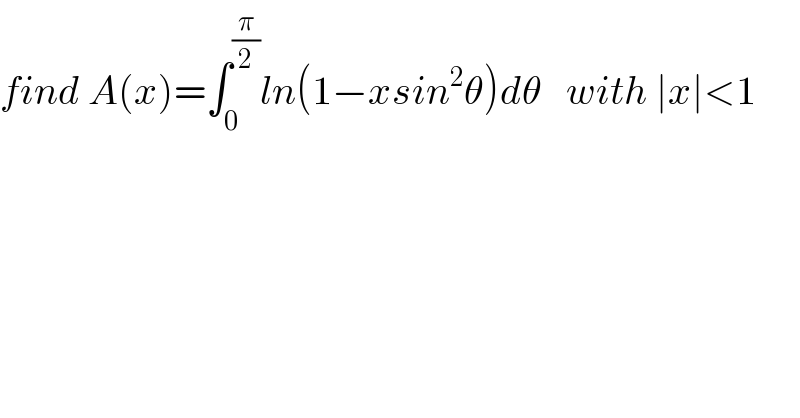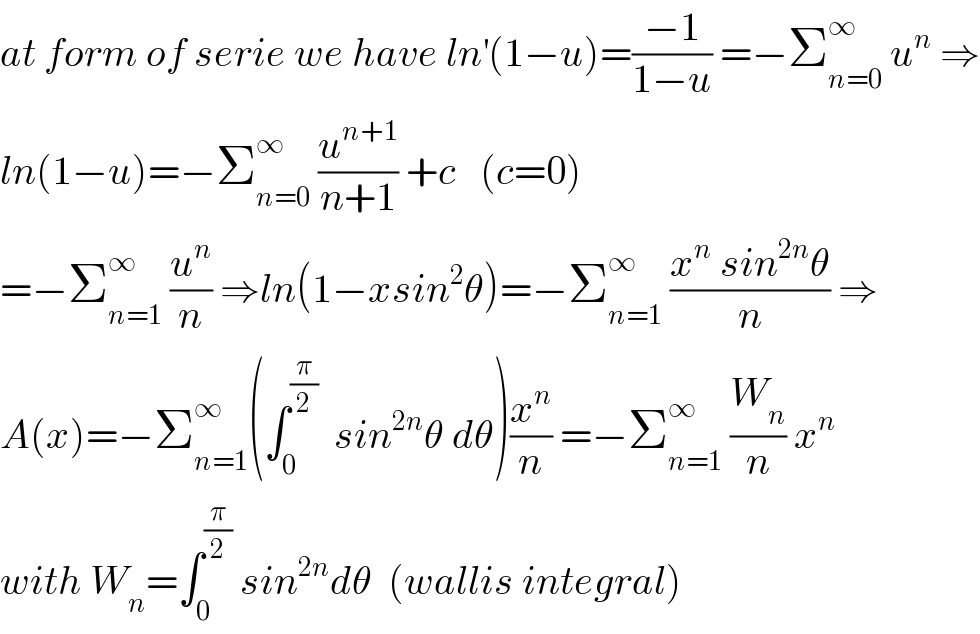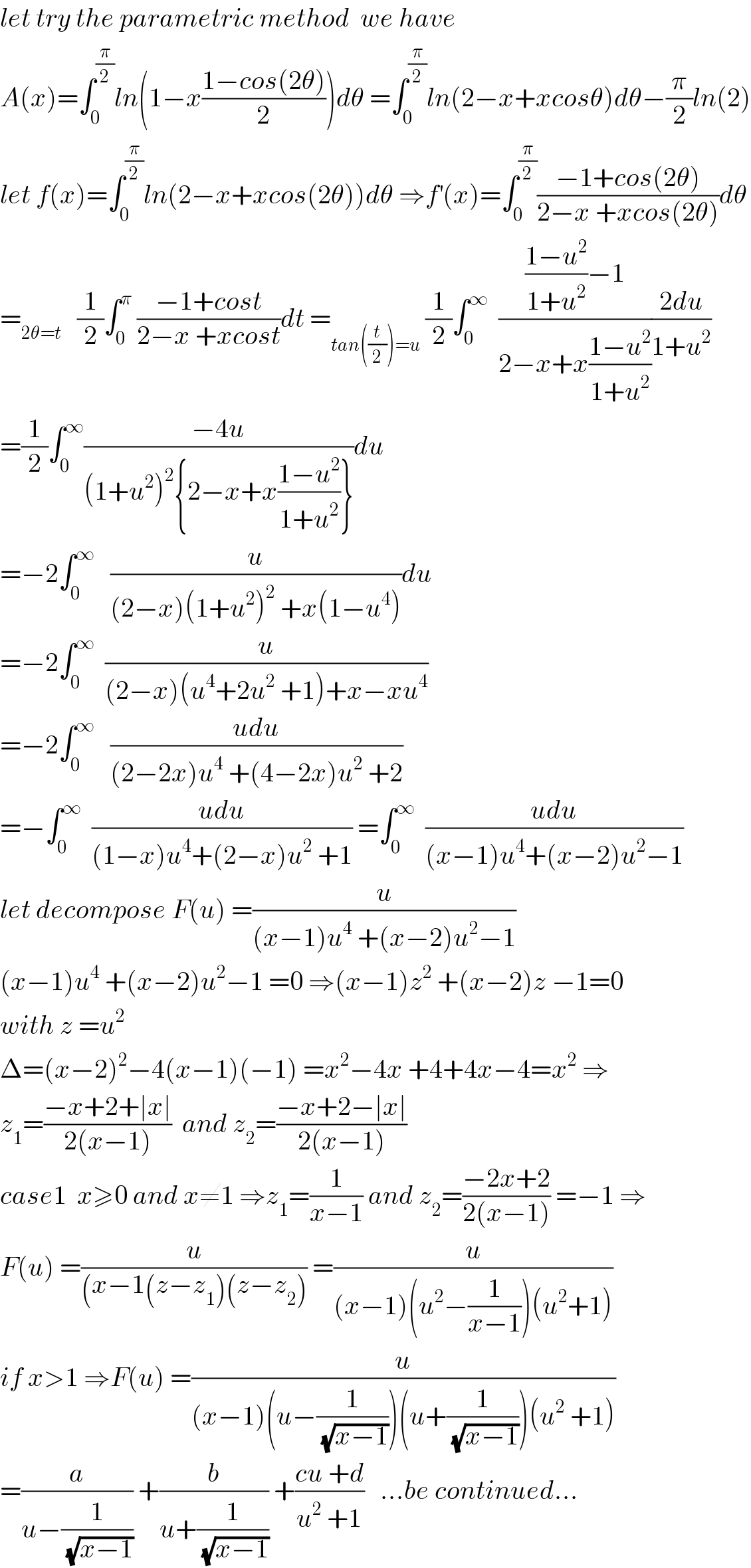
Question and Answers Forum
Question Number 72397 by mathmax by abdo last updated on 28/Oct/19

Commented bymathmax by abdo last updated on 28/Oct/19

Commented bymathmax by abdo last updated on 28/Oct/19

Commented bymind is power last updated on 29/Oct/19

Commented bymathmax by abdo last updated on 29/Oct/19

